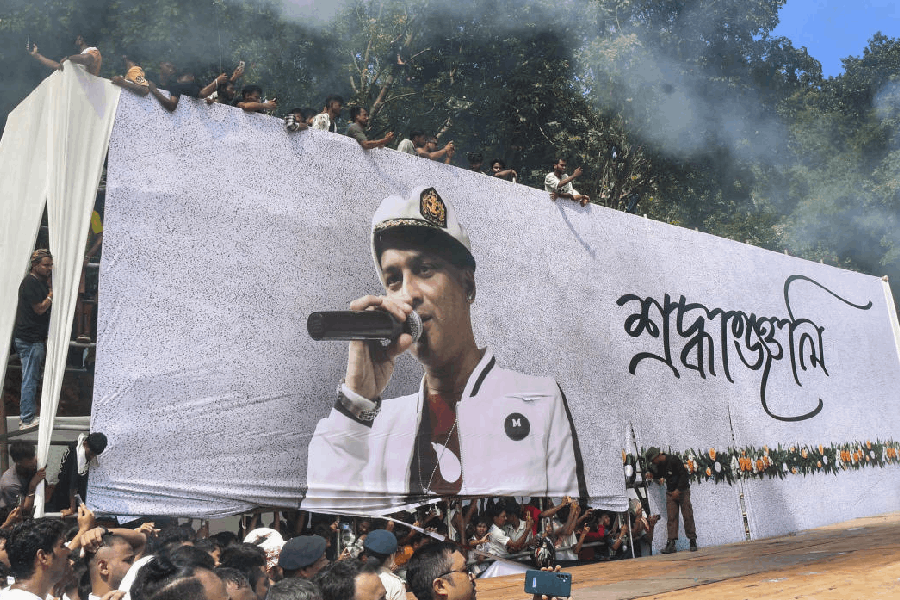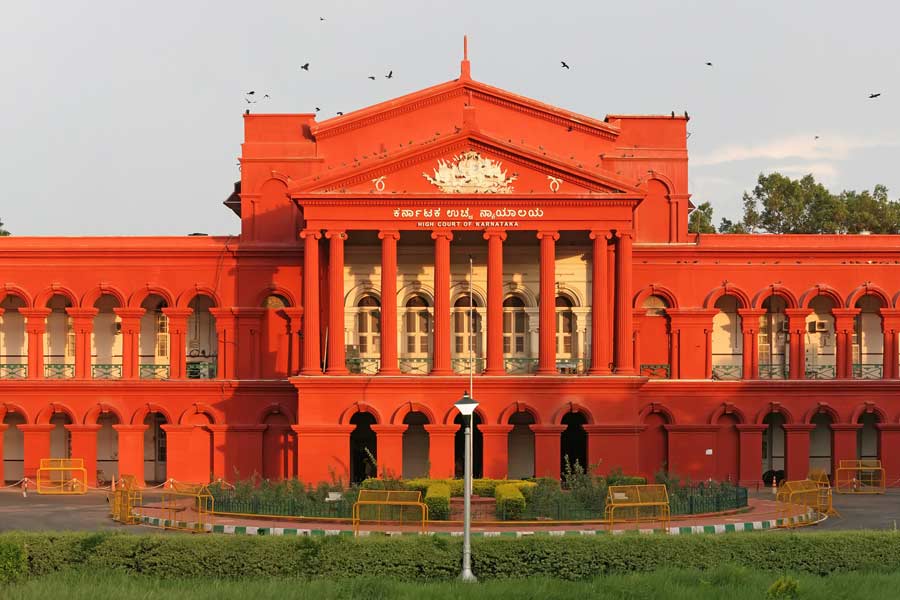 |
| R.K. Birajit Singh points out the prince’s belongings at his residence in Agartala. Picture by Kajal Kairi |
Agartala/Imphal, May 9: A Tripura researcher-cum-writer has salvaged the saga of a Manipuri prince whose life has remained shrouded in mystery ever since he was banished to the Andamans by the British for taking part in the Sepoy Mutiny.
Rajkumar Narendrajit Singh’s story has been retold by researcher Pannalal Roy in Great Mutiny: Northeast, his new book on the Northeast’s contribution to the Sepoy Mutiny.
The curator of the Manipur State Museum in Imphal, N. Dhanapati Devi, hoped the book would generate public interest in the prince and lead to state efforts to preserve his belongings, which are now the family heirlooms of his Tripura-based descendants.
The prince’s relatives had earlier turned down the museum’s request to hand over his belongings for public display.
Narendrajit’s part in the Sepoy Mutiny had resulted from dissension among a group of Manipuri princes against the British and their protege, Manipuri king Chandrakirti (1834-44 and 1850-86).
“Rajkumar Narendrajit, the grandson of Rajarshi Bhagyachandra (who ruled between 1759-62 and 1763-98, taking a year off for penance), was a heroic and ambitious figure who decided to fight the British and to capture the throne of Manipur,” says Roy.
The prince and his followers had fought the British along with mutineers on the Cachar-Manipur border. The prince, however, was seriously injured in the battle of Binnakandi in January 1858. His followers carried him to Manipur for treatment, but he was found and handed over to the British by Chandrakirti.
For fear of public reaction, the British sent him to Calcutta and, after a trial, to the Andamans for life imprisonment. “The British authority was mortally scared of this great man and his popularity with the Manipuris. Otherwise, they would surely have executed him in Cachar,” says Roy.
It is said that during his imprisonment, Narendrajit healed the British jailer’s wife with the Manipuri method of treatment. As a mark of gratitude, the jailer allowed him to escape and he returned to Manipur.
Narendrajit had been brought up at Jaribon in Hailakandi district but one of his sons, Bhupendrajit, later settled in Agartala.
“Even now Narenrajit’s achkan (dress), wooden sandals, horoscope and his hand-written copy of Srimad Bhagwat Gita are preserved in the house of his descendant, Birajit Singh, at Dhaleshwar in Agartala,” said veteran Manipuri intellectual Jitendrajit Singh.
Imphal-based historian N. Joykumar Singh, head of department of Manipur University’s history department, said the prince rose against the then king Chandrakirti, who along with the British had defeated and exiled him. The motive could have been to dethrone the king.











